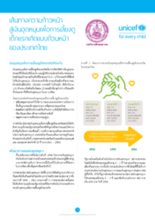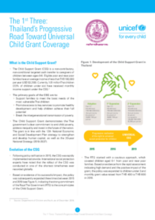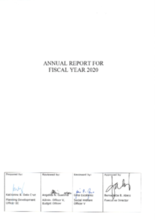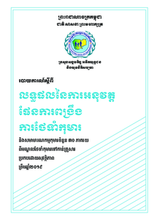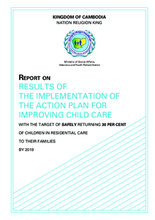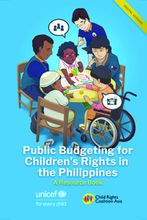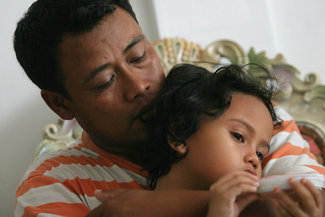

Displaying 161 - 170 of 752
This brief from UNICEF describes the Child Support Grant (CSG), a non-contributory, non-conditional targeted cash transfer to caregivers of children between ages 0-6 in Thailand.
This brief from UNICEF describes the Child Support Grant (CSG), a non-contributory, non-conditional targeted cash transfer to caregivers of children between ages 0-6 in Thailand.
Focusing on the life histories of children and young people living in residential care, this study explores the circumstances of their entry into residential care and their interpretations of these experiences.
This study explores the development of abused children in different areas. Likewise, it looks into differences of the level of development in relation to age, gender and type of abuse.
Country fact sheet for the UN Committee on the Rights of the Child; Philippines.
The Annual report provides an overview of the CY 2020 results of the implementation of the programs and activities aligned with the year's thrusts and
priorities: The report summarizes the capacity building activities and other initiatives to equip and empower stakeholders.
This report (in Khmer) presents the outcomes of the implementation of the Action Plan for improving child care with the target of safely returning 30 per cent of children in residential care to their families, including key achievements, lessons learned, and recommendations going forward.
This report presents the outcomes of the implementation of the Cambodian Ministry of Social Affairs, Veterans and Youth Rehabilitation (MoSVY) Action Plan for Improving Child Care and the safe return of 30 per cent of children in residential care to their families, including key achievements, lessons learned, and recommendations going forward.
This resource book simplifies and unpacks budget processes with key guidance on specific policies and steps for those who seek to be champions for child-centered public finance in the Philippines context.
This exploratory research led by Kindernothilfe between May – July 2020 shows how the challenges facing working children and their families have been exacerbated since the outbreak and it presents their recommendations for effective and relevant responses to the pandemic.

